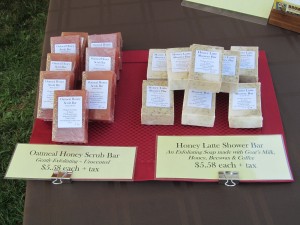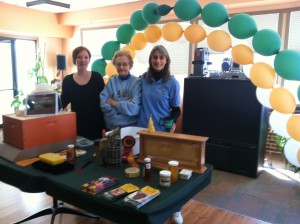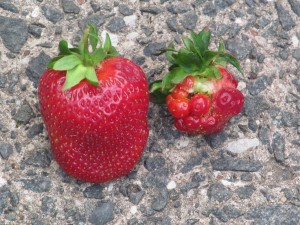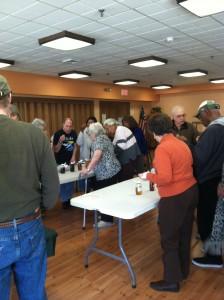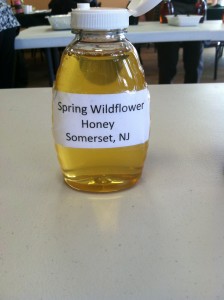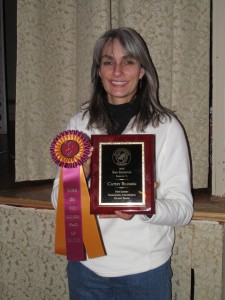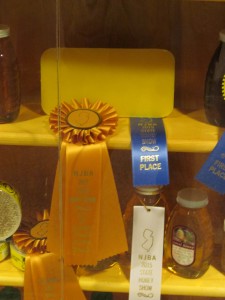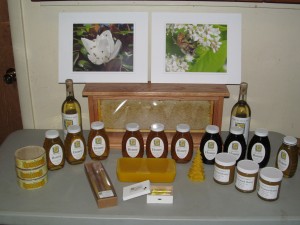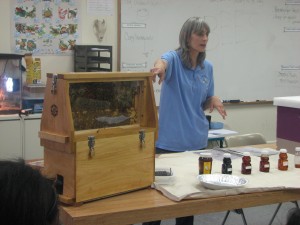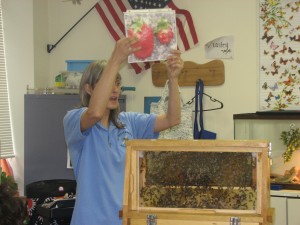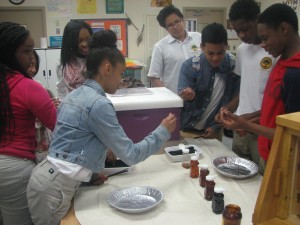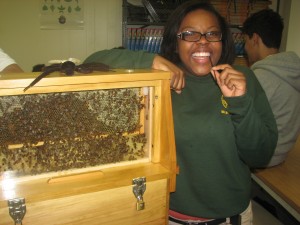Folks who venture out to Duke Farms on Saturdays should make a point to stop by and say hello at the Farm to Table Farmer’s Market.
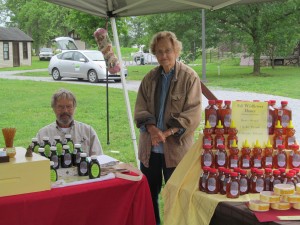
Len with his Mother-In-law, Gloria, in the Wolgast Tree Farm & Apiary booth at Duke Farms Farm To Table Market in Hillsborough.
This is the first time Wolgast Tree Farm & Apiary is participating in a farmer’s market as a vendor, and we’ve had a great time meeting people and sharing out enthusiasm for locally produced food – especially for local honey!
The Farm To Table Market at Duke Farms emphasizes foods and other agricultural products that have been produced within about a 50-mile radius of Duke Farms. Since we’re only about 10 miles away from Duke Farms our honey and other hive products fit right in.
We’ve been offering three distinct types of honey: “spring wildflower honey,” “fall wildflower honey” and “buckwheat-wildflower honey”. The difference between the three is based on the flowers from which our bees have been collecting nectar. Spring flowers produce a light, floral flavored honey, while the fall is darker and tastes more full-bodied. The buckwheat-wildflower is the darkest of all and has a strong molasses-like flavor that many people find addicting.
Along with the honey, we’re offering an assortment of handcrafted beeswax lip balms (Lemon-Lavender, Wintergreen, Raspberry, Mandarin Clove) and soaps (Queen Bee Honey Soap, Balsam Honey Hemp Bar, Oatmeal Honey Scrub Bar, Honey Latte Shower Bar), and more.
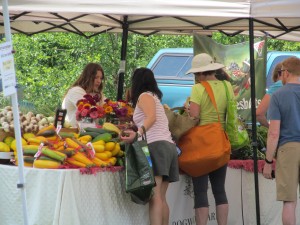
Customers at the Farm To Table Market at Duke Farms checking out the lovely produce offered by Dogwood Farms.
Chatting with folks who come to the Farm to Table Market has been lots of fun, but so has meeting all the other wonderful vendors and seeing the beautiful fruits, vegetables, meats, cheeses and other items they produce. Two of the vendors, Dogwood Farms and Harvest Moon Farm, are part of Duke Farms’ Incubator Farm program, which, in conjunction with the Northeast Organic Farming Association (NOFA-NJ), helps to bring along the next generation of farmers.
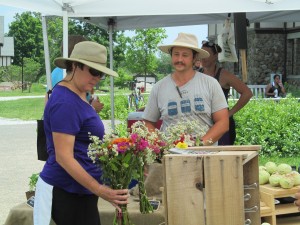
Kyle from Harvest Moon Farm showing fresh cut flowers to a visitor at Duke Farms’ Farm To Table farmers market.
They each offer a lovely spread of just-picked produce and other items every Saturday.
Green Duchess Farm is right around the corner from our farm on Bennetts Lane (howdy neighbor!). They produce pastured pork, poultry and eggs, and specialize in raising the Bourbon Red, a Heritage Turkey breed that’s perfect for Thanksgiving (better order your bird early!).
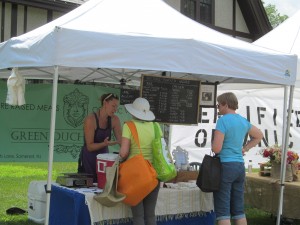
Jessica from Green Duchess Farm talks turkey with a customer who wants to order one of her Bourbon Red Heritage Turkeys for Thanksgiving.
Hot Sauce 4 Good is another local vendor at the market that offers an amazing variety of hot sauces. Many of the ingredients in the hot sauces include produce not only grown by New Jersey farmers, but on farms in Somerset county. Something else that’s special about Hot Sauce 4 Good is that it’s produced
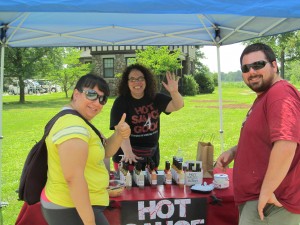
Hot Sauce 4 Good makes incredible hot sauce that benefits many charities both in New Jersey and around the world. Many of the ingredients come from New Jersey farms which adds another layer of “good” to an already giving enterprise.
for the benefit of many deserving charities, both around the world and in the Garden State. At least $1 from each bottle sold is donated to these charities. So far the efforts of the good people behind Hot Sauce 4 Good has raised over $65,000. Great hot sauces for great causes!
A trip to Duke Farms is worthwhile by itself, but we think the addition of the Farm to Table Market on Saturdays is even more reason to visit. How often does one get the opportunity to have access to truly LOCAL, seasonal foods and can chat with the actual persons who produced them? Plus, the food is delicious and supporting these farmers is an important part of helping to keep Somerset County green. It’s a honor for us to be among such a good group of people and we hope to see you at the market!
For more information on the Farm To Table Market visit: http://dukefarms.org/en/Visit/NEW-Farm-to-Table-Market/
